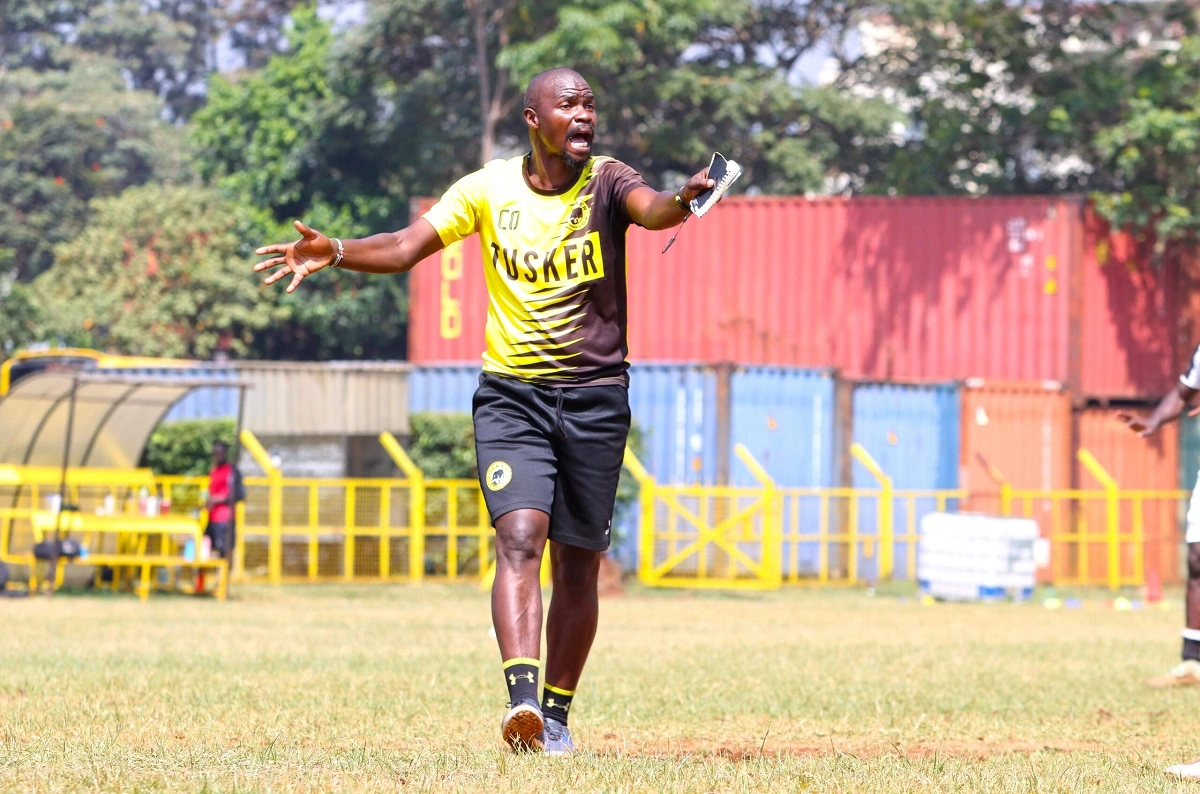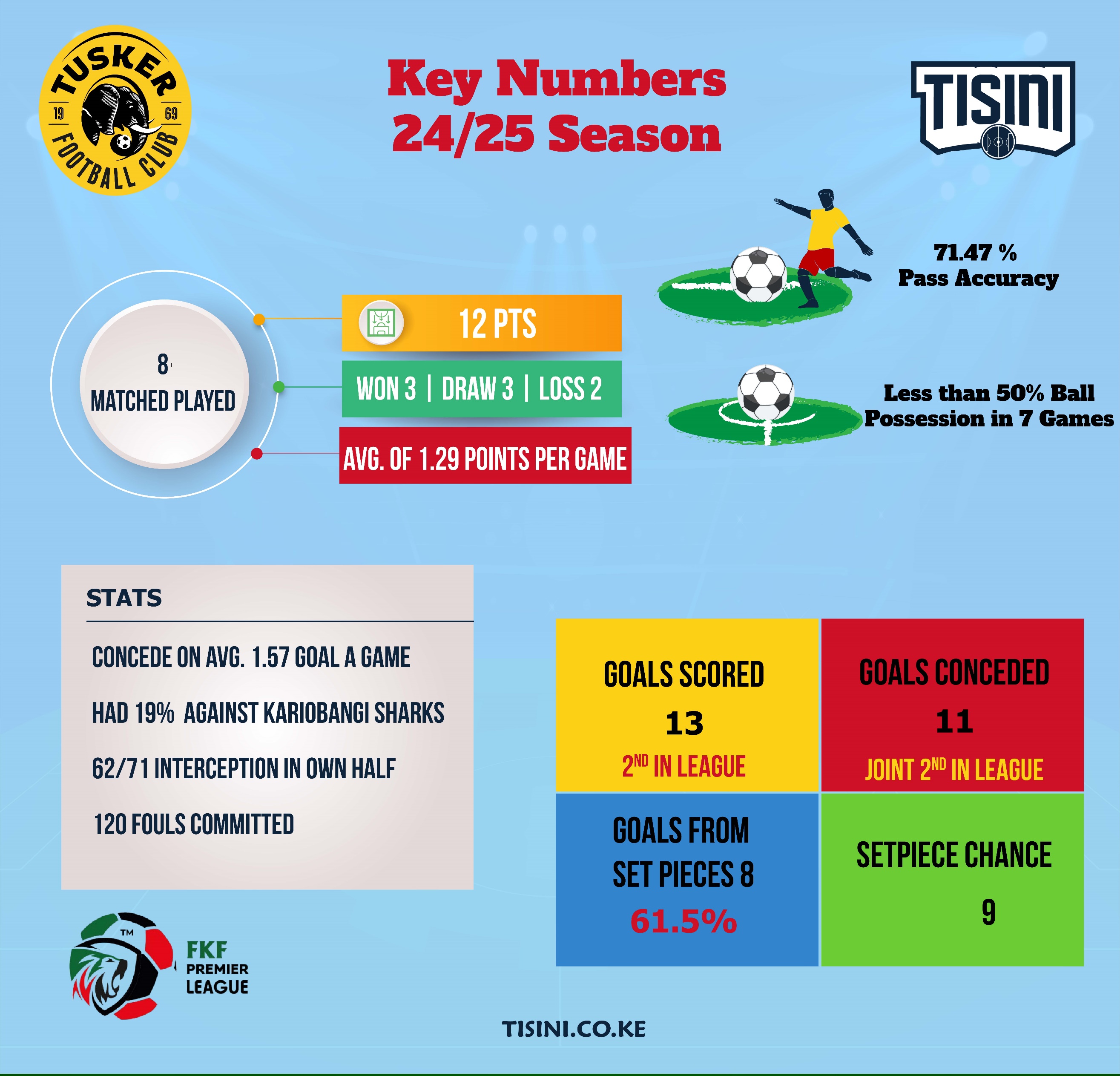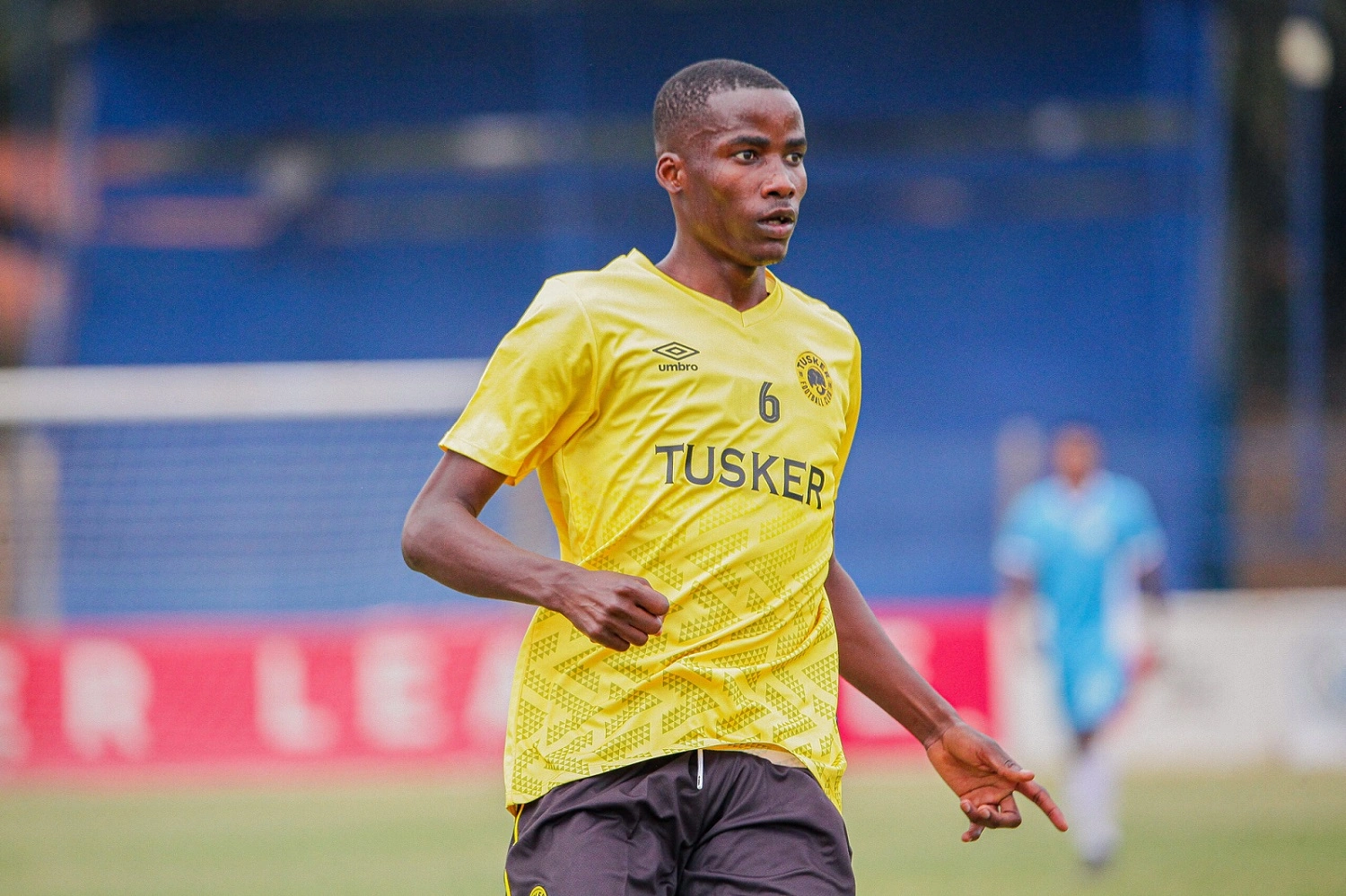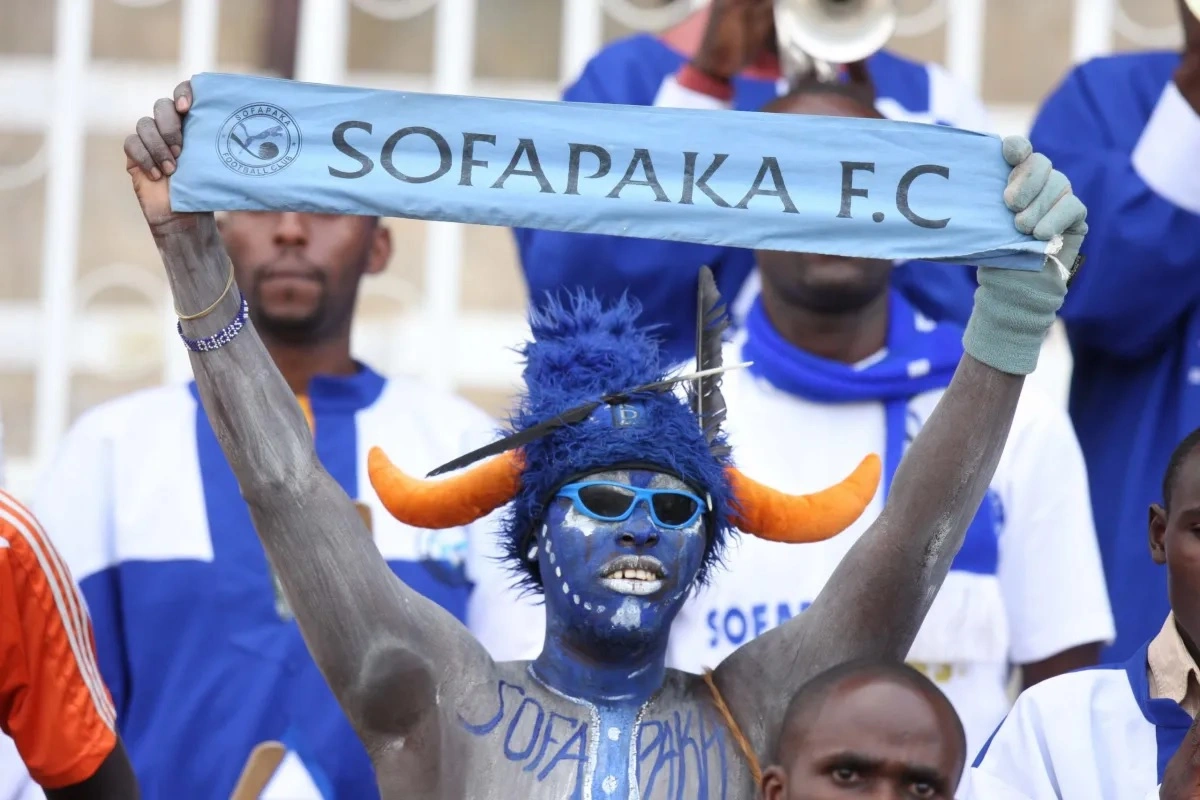
Brewing Concerns: Charles Okere's Tusker Struggles to Find Its Footing
After six years of mixed results, with some success under Robert Matano, Tusker FC stands at a crossroads. The storied club, a symbol of consistency in Kenyan football, now faces a pivotal moment: Can Charles Okere, the 43-year-old tactician and former assistant coach, rise to the occasion and restore the Brewers to their former glory?
The pressure is on, and the early signs suggest a challenging road ahead. Matano stepped down paving the way for Okere, his former assistant, to lead the Brewers. Okere joined Tusker in 2018 as the youth coach before graduating to Matano's assistant. With a fresh approach and tactical acumen, Okere has quickly set about shaping Tusker's season, aiming to build on the club's legacy while navigating the challenges of top-flight football.
Tactical Struggles: A Question of Intent
Since taking charge, Charles Okere has introduced a more cautious tactical approach, drawing mixed reactions. 9 games in, critics argue that Tusker's style of play lacks the attacking intent needed to dominate opponents. With possession below 50% in five of their last 7 matches, including an alarmingly low 19% against Kariobangi Sharks, the Brewers appear to favor a reactive game plan over proactive control. This raises questions: Is the reliance on transitions and set pieces a deliberate strategy, or does it reflect deeper issues with ball retention?
It might be a deliberate strategy to rely on transitions and set pieces, as evidenced in their wins over Police and Talanta. Alternatively, it could point to poor ball retention. Tusker has attempted 1160 passes and has a success rate of 71.47% which is not very good for a top side.

Defensive Concerns: Vulnerabilities Exposed
Tusker’s passive approach has placed immense strain on their defense. Despite their efforts to sit deep, they’ve conceded 11 goals in seven games, averaging 1.57 goals per match. Alarmingly, there’s a pattern of conceding goals early and late in halves.
Against KCB, they conceded twice within the first 12 minutes, one goal inside the opening 3 minutes of the second half vs Ulinzi (48th minute), once inside the first 3 minutes vs Talanta, and once inside the opening 20 minutes vs Kenya Police FC; similarly, late goals against Kakamega Homeboyz (41st & 43rd minute) and Kariobangi Sharks (84th & 97th minute) have highlighted lapses in concentration. Defensive statistics paint a concerning picture.
Of their 71 interceptions, 62 occurred in their half, indicating an inability to disrupt opposition play higher up the pitch. They’ve conceded three goals from transitions and one from a counterattack. Fouls also remain a problem, with 120 committed and 11 yellow cards accumulated, leading to two goals conceded via set pieces, a penalty, and a freekick.
Overreliance on Set Pieces: A Limited Arsenal
Tusker's attack has leaned heavily on set pieces, responsible for 61.5 % (8 out of 13) of their goals. While this demonstrates efficiency in dead-ball situations, the reliance is very unsustainable. Open-play creativity remains a glaring weakness, with no goals scored from transitions or counters so far this season. Diversifying their attacking strategies will be essential if Tusker hopes to challenge consistently at the top.
Conclusion: Time for a Tactical Shift
The team finds itself at a critical juncture under Charles Okere. While his fresh ideas bring potential, early results reveal clear areas for improvement. The Brewers must address their passivity, enhance ball retention, and foster creativity in open play to regain their competitive edge. With an average of 1.29 points per game, significantly lower than last season’s 1.91, the warning signs are evident.
However, the season it is still early in the season. Okere’s ability to adapt and respond to these challenges will determine whether Tusker’s legacy continues to shine or falters under the weight of expectation.





